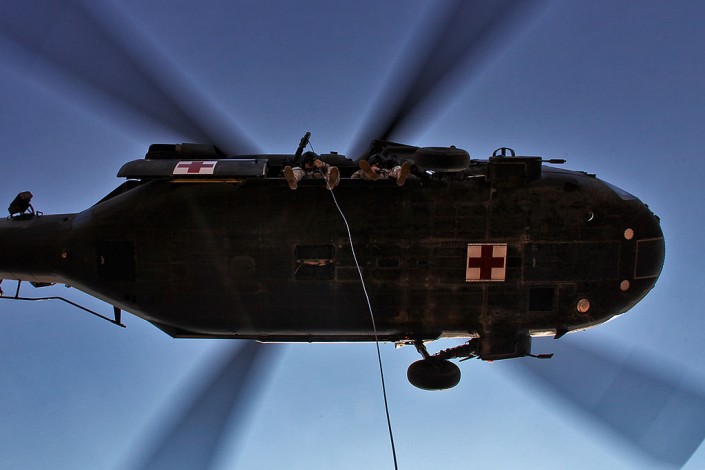Work in progress: A licensed vaccine to protect U.S. troops from Q-fever

Image: U.S. Army via Wikimedia Commons
Armed with $4.8 million in funding from the Pentagon’s Defense Threat Reduction Agency, researchers at the Texas A&M College of Medicine are working to create a licensed vaccine for Query fever – known more commonly as Q fever – an animal-borne bacterial infection that has affected hundreds of U.S. troops stationed in Iraq and Afghanistan.
The A&M research team is led by James Samuel, chair of the Department of Microbial Pathogenesis and Immunology, and holder of the Woffard Cain Endowed Chair in Infectious Disease.
“Most people have never heard of Q fever, but it is actually quite common,” Samuel said. “The diagnostic gap occurs because the disease presents with flu-like symptoms, so most people just think they just have the flu. But Q fever flu-like symptoms can range from asymptomatic to severely debilitating.”
Because of its range of symptoms – fever, fatigue and muscle pains (to name a few) – Q fever is often under-diagnosed. While the disease occurs worldwide with acute and chronic manifestations, mortality from Q fever is unlikely.
In collaboration with researchers from the University of Missouri College of Veterinary Medicine, Tulane Primate Research Institute, and INCELL, Samuel is currently identifying vaccine candidates and formulations in year two of a five-year contract with DTRA. Samuel hopes that within the next few years, the team will have a vaccine ready for human clinical trials.
“An effective and safe Q fever vaccine would safeguard both military in foreign deployment and at risk workers in the U.S., especially those in the cattle, sheep and goat industry,” he said.

